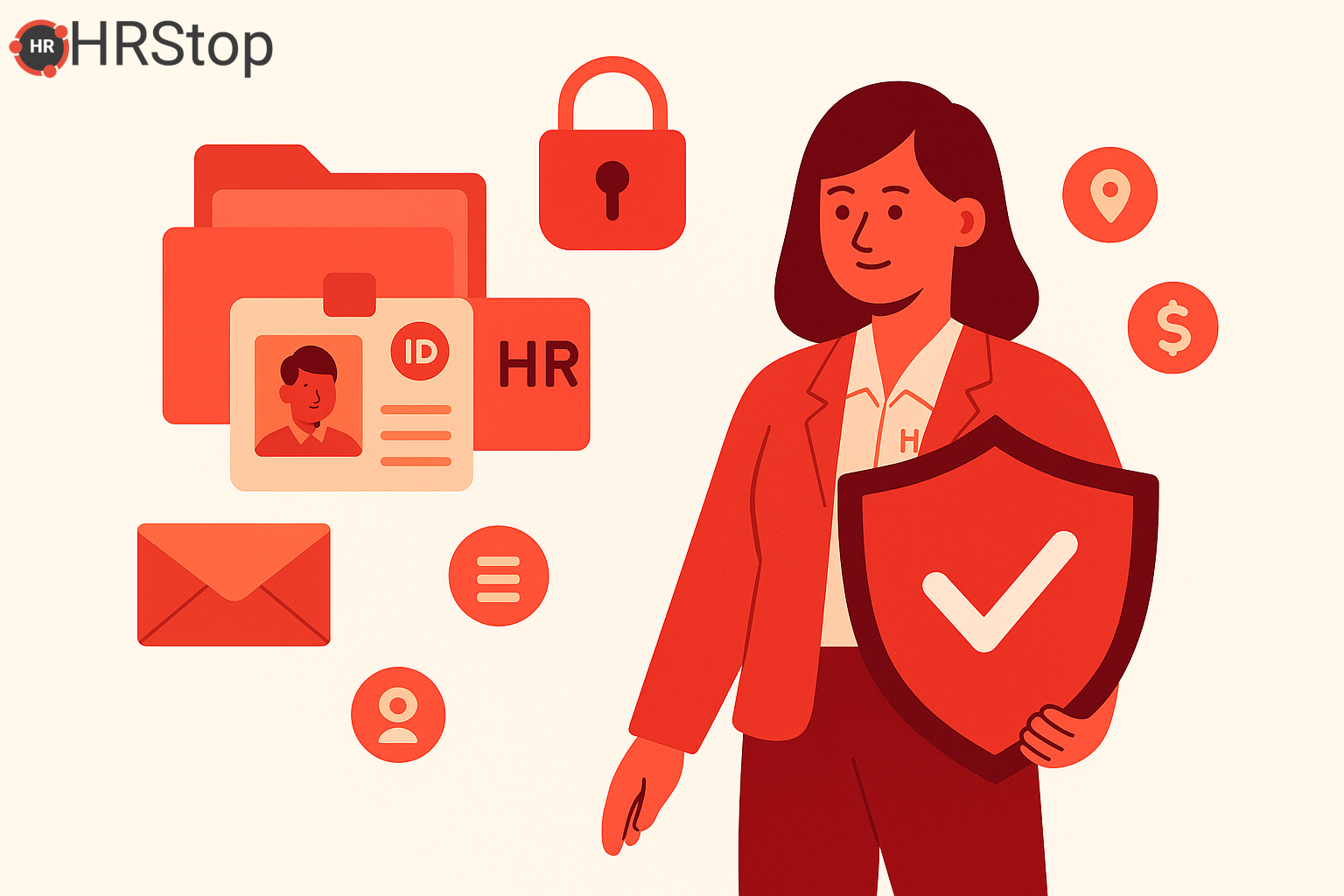What Is Data Privacy in HR?
The HR Team Knows More Than You Think
If you’re in HR, you already know — your team sees it all.
Salaries. Medical histories. ID proofs. Family information. Even disciplinary records.
And with great access comes great responsibility.
That’s why data privacy in HR is no longer just a best practice — it’s a legal and ethical necessity.

So, What Exactly Is Data Privacy in HR?
In simple terms, HR data privacy means protecting the personal information of employees, applicants, and contractors from unauthorized access, misuse, or exposure.
It includes:
- Collecting only the data you need
- Storing it securely
- Using it responsibly
- Giving people transparency and control over their information
What Kind of Employee Data Needs Protection?
You’d be surprised how much HR holds. Here are just a few examples:
- Personal identifiers: Full name, address, phone number, email, ID proofs
- Financial data: Bank account details, tax IDs, salary slips
- Health & benefits info: Insurance claims, sick leave records, medical certificates
- Employment history: Offer letters, contracts, promotion records, appraisals
- Sensitive files: Exit interview notes, grievance logs, performance warnings
If it can be used to identify or evaluate someone — it needs protection.
The Legal Side: Why It’s Not Optional
Whether you're based in India, the U.S., or Europe — employee privacy is governed by laws.
- India: The Digital Personal Data Protection Act (DPDPA) is now active, requiring employers to obtain consent and restrict access.
- Europe: GDPR sets strict rules on data collection, usage, and employee rights.
- U.S.: States like California (CCPA) also have employee-specific privacy regulations.
💡 Bottom line: non-compliance isn’t just risky — it’s punishable.
5 HR Privacy Practices That Actually Work
- Consent-First Approach
Make it clear why data is being collected, how it will be used, and get employee consent. - Limit Access
Only allow access to those who absolutely need the data. Finance doesn’t need medical info. HR interns don’t need payroll visibility. - Secure Systems
Use HRMS platforms (like HRStop) that offer encryption, role-based access, and compliance dashboards. - Set Retention Rules
Don’t hoard data forever. Define how long each type of document should be kept — and auto-delete or archive the rest. - Train Your HR Team
Privacy starts with people. Regularly train your team on what data is sensitive, and what can (or can’t) be shared.
Employees Notice How You Handle Their Data
Trust is built silently.
If employees feel their personal info is safe with HR, they’re more likely to:
- Be honest in feedback and surveys
- Share sensitive documents on time
- Stay loyal to the company
- Recommend you as a good employer
But one slip-up? That trust is hard to rebuild.
Closing Notes: Privacy Is a Trust Agreement
Every time someone joins your company, they’re trusting you with more than just their time.
They’re handing over deeply personal data.
Protect it like you’d protect your own.
Explore More from HRStop
Rashmi Agarwal
Saturday, June 07, 2025
Become part of our team
- Full Stack Developer
- Business Development Executive
- Technical Content Writer
- HR Business Partner
- Customer Happiness Executive
- Marketing Executive
One stop solution for all
Hire to Retire needs
HRStop is a complete Hire to Retire HR platform that accelerates the success of your business processes.
